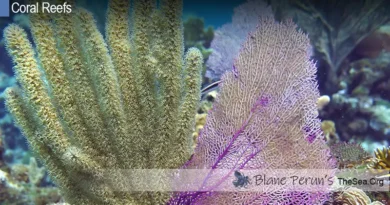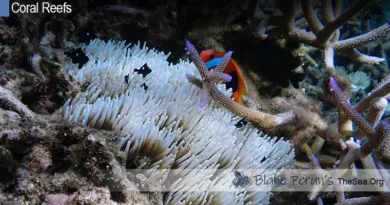Why Are Coral Reefs Important
Table of Contents
Have you ever asked yourself, why are coral reefs important, and why do people make so much fuss about the conservation of coral reefs? Although global warming and the slow but certain decline of coral reef population seems to be a problem that’s unrelated when it comes to our day-to-day life, the disappearance of coral reefs would have a profound impact on global economy. According to current estimations, coral reefs just in the Florida area have an estimated worth of $8.5 billion. From fishing to tourism, there are many areas that can gain from the many benefits offered by coral reef habitats, as long as the negative impact of interacting with these precious natural resources can be minimized as much as possible.
It’s important to first analyze the question, why are coral reefs important as a viable food source? First of all, even though corals can’t be eaten, coral reefs support millions of people as a source of food and income. No less than 500 million people living in coastal areas all around the world benefit from the fish and coastal protection offered by the coral reef habitats in their areas. Entire industries are based on seafood collected from coastal regions rich in coral reef, products including anything from canned fish, to fish sold in supermarkets, to that delicious lobster dinner you might have at a fancy restaurant.
Why are coral reefs important for the global economy? Since coral reefs are considered just as important as forests, due to their ability to regulate ocean CO2 content and keep coastal environments in pristine condition, and since their functions are actually similar and oftentimes compared to the functions of forests, they are known to be just as crucial from an economic standpoint. Tourism is also a global benefit, and it accounts for benefits valued at nearly $10 billion per year. Tour operators, hotels and restaurants from more than 100 countries have a hefty paycheck simply because coral reefs exist.
Mangrove forests, lagoons and the seagrasses they house, as well as the many fish and marine animals that are protected by coral reefs, are all worth significant amounts simply because they help keep the coastal ecosystem in balance and protect the investments of local residents and businesses. If you own a business or a house near the beach, your assets would plummet, should the corals and coral reef structures in the area suddenly disappear. Ultimately, the question isn’t “why coral reefs are important to the economy” anymore, but how can we protect these invaluable assets from completely disappearing in the next few decades?
Why Are Coral Reefs Important: Unveiling the Underwater Cities of Our Oceans
Coral reefs, often described as the rainforests of the sea, are not just stunning underwater landscapes; they are crucial ecosystems playing a pivotal role in the health of our oceans and planet. These vibrant underwater cities are teeming with life, supporting an astonishing diversity of marine species. Understanding why coral reefs are important involves delving into their ecological, economic, and protective functions that affect marine life and human communities alike.
Ecological Significance of Coral Reefs
A Biodiversity Hotspot
Coral reefs are one of the most biologically diverse ecosystems on Earth. Despite covering less than 0.1% of the ocean floor, they are home to approximately 25% of all marine life. This biodiversity hotspot acts as a marine nursery, providing shelter and food for a multitude of species, from tiny plankton to large fish. The intricate food webs established within coral reefs are vital for the survival of many marine species, some of which are crucial for the sustenance of coastal communities.
Economic Impact of Coral Reefs
A Boon to Fisheries and Tourism
Coral reefs have a significant economic impact, especially in coastal regions. They contribute to the livelihoods of millions of people globally through fisheries and tourism. Reefs support commercial and subsistence fishing, providing a primary source of protein for many coastal communities. Moreover, the beauty of coral reefs attracts tourists worldwide, fostering a thriving tourism industry. Activities like snorkeling and scuba diving in these vibrant underwater worlds generate substantial revenue, which is crucial for the local economies.
In conclusion, coral reefs are not just beautiful natural wonders; they are essential for the sustainability of marine life and human communities. They foster an incredible range of biodiversity, sustain livelihoods through fisheries and tourism, and act as natural barriers protecting our coastlines. Their significance cannot be overstated, and understanding their value is key to advocating for their protection and preservation.
FAQs about Coral Reefs
- What role do coral reefs play in marine ecosystems? Coral reefs are essential in marine ecosystems as they provide habitat and food for a wide range of marine species. They act as nurseries for many fish species, contributing to the biodiversity of the oceans.
- How do coral reefs benefit coastal communities? Coastal communities benefit from coral reefs through fisheries and tourism. Reefs provide a source of food and income for fishermen and attract tourists for activities like snorkeling and diving, boosting the local economy.
- Are coral reefs under threat? Yes, coral reefs face numerous threats, including climate change, pollution, overfishing, and destructive fishing practices. These factors can lead to coral bleaching and the degradation of reef ecosystems.
- Can damaged coral reefs recover? Damaged coral reefs can recover if given time and the right conditions. Efforts like reducing pollution, establishing marine protected areas, and reef restoration projects can aid in their recovery.
- What can individuals do to help protect coral reefs? Individuals can help protect coral reefs by reducing carbon footprints, using reef-safe sunscreens, supporting sustainable fisheries, and participating in or donating to reef conservation efforts.




